Deep within the realm of hip-hop lies a world of untapped talent, where artists push boundaries and defy conventions – the underground rap movement. This enigmatic landscape is home to hidden gems and battle rappers who weave intricate narratives, experiment with innovative flows, and challenge the status quo. From its humble beginnings in urban ghettos to its current global presence, underground rap has evolved into a vibrant ecosystem of creatives who refuse to conform to mainstream expectations.
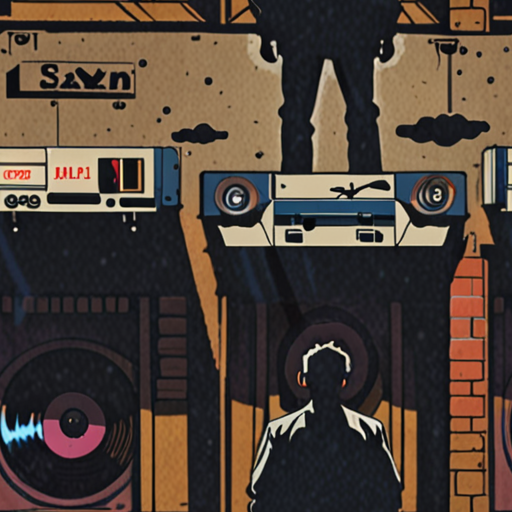
What Makes Something Underground Rap?
As a hip-hop enthusiast, I’ve always been fascinated by the underground rap scene, which is often characterized by its raw energy, lyrical complexity, and DIY ethos.
- Independence : Underground rappers often operate outside the mainstream music industry, releasing music through independent labels or self-producing their own tracks.
- Authenticity : Underground rap is often marked by its authenticity and honesty, with artists speaking truthfully about their experiences and perspectives.
- Experimentation : Underground rappers frequently push the boundaries of traditional hip-hop, incorporating elements from other genres like jazz, funk, and electronic music.
- Lyrical Depth : Underground rap often prioritizes lyrical complexity and storytelling over commercial appeal, resulting in thought-provoking and emotionally resonant lyrics.
- Cultural Relevance : Underground rap often reflects the concerns and issues of marginalized communities, making it a powerful tool for social commentary and activism.
In addition to these characteristics, underground rap is also defined by its connection to the broader hip-hop community, with many artists drawing inspiration from pioneers like DJ Shadow, J Dilla, and MF DOOM.
Abstract Hip Hop is proud to be part of this vibrant and dynamic scene, showcasing the work of talented underground rappers and producers who are pushing the boundaries of what’s possible in hip-hop.
Some notable examples of underground rappers include:
- Jay Electronica
- MF DOOM
- Danny Brown
- Vince Staples
These artists, among many others, are helping to shape the sound and direction of underground rap, and we’re excited to share their music with our audience.
At Abstract Hip Hop, we believe that underground rap is more than just a genre – it’s a movement, a community, and a way of life.
We’re committed to supporting and celebrating the creativity and innovation of underground rappers, and we hope you’ll join us on this journey.
What is Deep Underground Rap?
Deep Underground Rap is a subgenre of hip hop music characterized by its raw, underground sound and focus on lyrical content.
-
Raw Sound
The raw sound of Deep Underground Rap is often associated with its DIY ethos and lack of commercial polish.
-
Lyrical Content
The focus on lyrical content in Deep Underground Rap sets it apart from mainstream hip hop, which often prioritizes catchy hooks and beats.
-
Underground Roots
Deep Underground Rap has its roots in the underground hip hop scene, where artists often self-release their music and connect with fans through online platforms.
Characteristics of Deep Underground Rap
Some common characteristics of Deep Underground Rap include:
- Lo-fi production
- Emphasis on storytelling through lyrics
- Experimentation with unconventional sounds and styles
- Focus on social justice and personal struggle
Artists Associated with Deep Underground Rap
Some notable artists associated with Deep Underground Rap include:
- J Dilla
- Madlib
- Kendrick Lamar
- Aesop Rock
Influence of Deep Underground Rap
Deep Underground Rap has had a significant influence on the broader hip hop landscape, inspiring a new generation of artists to experiment with unconventional sounds and styles.
Conclusion
Deep Underground Rap is a vibrant and dynamic subgenre of hip hop music that continues to evolve and inspire new artists and fans alike.
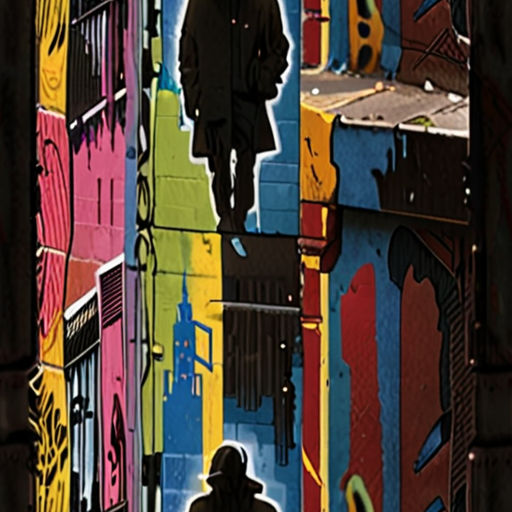
Who is the Best Underground Rapper?
The title of the best underground rapper can be subjective, as opinions may vary depending on personal taste and preferences.
- MF DOOM is often considered one of the greatest underground rappers of all time, known for his intricate lyricism and eclectic production style.
- Immortal Technique has gained a massive following for his socially conscious lyrics and energetic live performances.
- Tech N9ne is a highly influential figure in the underground rap scene, celebrated for his rapid-fire flow and versatility in blending different styles.
- Mos Def is a critically acclaimed rapper who has made significant contributions to the underground hip-hop movement, incorporating elements of jazz and soul into his music.
- Big L was a pioneering figure in the underground rap scene, recognized for his lyrical dexterity and raw, unapologetic delivery.
- Atmosphere is a highly respected underground rapper, praised for his introspective lyrics and soothing, atmospheric soundscapes.
- Aesop Rock is a masterful wordsmith, admired for his complex rhyme schemes and thought-provoking lyrics that often touch on themes of science fiction and fantasy.
Abstract Hip-Hop’s Take on Underground Rap
As a platform dedicated to exploring the world of hip-hop music, art, and culture, we believe that the best underground rappers are those who push boundaries and challenge conventions.
- We emphasize the importance of creativity and experimentation in underground rap, encouraging artists to take risks and innovate in their approach to music-making.
- We recognize the significance of community and collaboration in the underground rap scene, highlighting the role that artists play in supporting and uplifting one another.
- We celebrate the diversity and inclusivity of underground rap, acknowledging the many different styles and perspectives that contribute to its richness and complexity.
Exploring the World of Underground Rap
For those interested in delving deeper into the world of underground rap, we recommend checking out our blog posts and artist interviews, which offer in-depth analysis and behind-the-scenes insights into the lives and careers of some of the most innovative figures in the genre.
Additionally, we encourage readers to explore the work of emerging artists and producers, who are helping to shape the future of underground rap and push the boundaries of what is possible in hip-hop music.
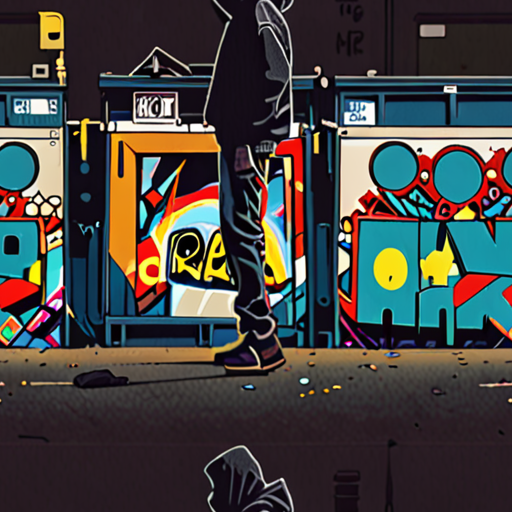
Is Eminem an Underground Rapper?
Eminem’s early career began in the underground hip-hop scene, where he gained recognition as a solo artist and a member of the Detroit-based rap group D12.
- The release of his debut album “Infinite” in 1996 marked his entry into the underground hip-hop world, although it didn’t gain much commercial success.
- However, Eminem continued to work on his craft, eventually signing with Dr. Dre’s Aftermath Entertainment and releasing his major-label debut “The Slim Shady LP” in 1999.
While Eminem’s rise to fame was swift, his roots in the underground hip-hop scene remain undeniable.
- Eminem’s lyrics often reflected his experiences growing up in poverty and struggling with addiction, resonating with fans who felt marginalized and overlooked by mainstream society.
- His raw, emotive delivery and unapologetic storytelling style set him apart from more polished, commercial rappers, earning him a loyal following among underground hip-hop enthusiasts.
Despite achieving massive commercial success, Eminem has maintained connections to the underground hip-hop community through collaborations with artists like Tech N9ne and Yelawolf.
Abstract Hip Hop recognizes Eminem’s contributions to the underground hip-hop movement, acknowledging his influence on contemporary hip-hop and his enduring legacy as a pioneering figure in the genre.
For more information on Eminem’s impact on hip-hop, visit our Eminem biography page .
Explore the world of underground hip-hop on our website, featuring music reviews , artist interviews , and in-depth articles on the latest trends in the genre.
Snoop Dogg Genre
Snoop Dogg is primarily associated with West Coast hip-hop gangsta rap, which emerged in the early 1990s. However, his musical style has evolved over the years, incorporating various genres such as G-Funk, funk, soul, and R&B. His ability to blend these styles has contributed to his enduring popularity and versatility as an artist.
Abstract Hip-Hop Connection
As a pioneer of West Coast hip-hop, Snoop Dogg’s music often explores themes of life in Los Angeles, street culture, and social issues. His lyrics frequently incorporate storytelling, vivid descriptions, and slang, which have become hallmarks of his distinctive style. While he may not be typically associated with the abstract hip-hop movement, his experimentation with unconventional sounds and collaborations with artists from diverse backgrounds demonstrate his willingness to push boundaries and innovate within the genre.
Competitors and Similar Artists
Other notable rappers from the West Coast who have made significant contributions to the gangsta rap genre include Dr. Dre, Ice Cube, and N.W.A. These artists, along with Snoop Dogg, helped shape the sound of West Coast hip-hop and paved the way for future generations of rappers. Their influence can still be heard in contemporary hip-hop, and their legacy continues to inspire new artists and fans alike.
- Dr. Dre: A legendary rapper, producer, and entrepreneur who played a crucial role in popularizing West Coast hip-hop.
- Ice Cube: A pioneering rapper, actor, and filmmaker who was instrumental in shaping the sound and style of gangsta rap.
- N.W.A: A groundbreaking group that helped define the West Coast hip-hop sound and addressed social issues through their music.
Evolution of Snoop Dogg’s Style
Throughout his career, Snoop Dogg has demonstrated an ability to adapt and evolve his sound, incorporating new styles and collaborating with artists from various genres. This flexibility has allowed him to remain relevant and continue producing high-quality music that appeals to a broad audience. By embracing innovation and pushing the boundaries of what is possible within hip-hop, Snoop Dogg has solidified his position as a true legend of the genre.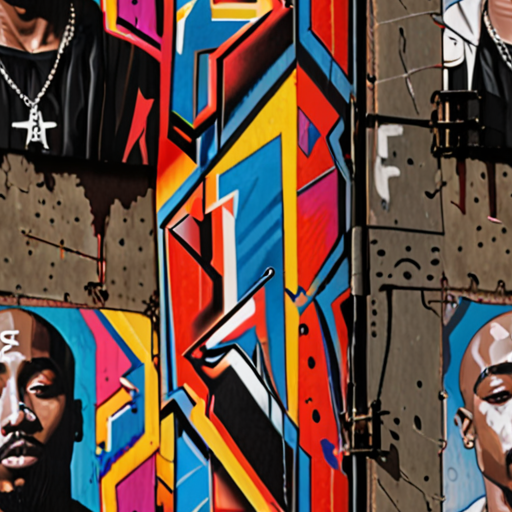
Did Eminem Ever Meet Tupac?
Eminem and Tupac may have been two of the most influential figures in hip-hop history, but unfortunately, they never had the chance to meet.
- Tupac passed away in 1996 due to complications from gunshot wounds he sustained during a drive-by shooting in Las Vegas.
- Eminem rose to fame around 1999 with the release of his major-label debut album “The Slim Shady LP.”
Although they never met, Tupac was a significant influence on Eminem’s early work, and his legacy continues to inspire artists today.
Dr. Dre, who signed Eminem to Aftermath Entertainment, knew Tupac personally and collaborated with him on several projects, including the iconic song “California Love.”
As a result, Eminem has often cited Tupac as a major inspiration and has referenced him in various songs throughout his career.
In fact, Eminem’s music often explores themes of social justice, police brutality, and racism – issues that Tupac also addressed in his own music.
While we can’t change the past, it’s clear that Eminem and Tupac would have made a powerful team if they had ever had the opportunity to collaborate.
The Lasting Impact of Tupac and Eminem
Tupac and Eminem may have come from different eras, but their music continues to resonate with fans around the world.
Both artists pushed the boundaries of what was possible in hip-hop, experimenting with new styles and themes that helped shape the genre into what it is today.
From Tupac’s powerful lyrics to Eminem’s complex rhyme schemes, both artists left an indelible mark on hip-hop history.
Conclusion
In conclusion, while Eminem and Tupac never got to meet, their music continues to inspire and influence new generations of artists and fans alike.
Their legacies serve as a reminder of the power of hip-hop to bring people together and spark meaningful conversations about social justice and personal empowerment.

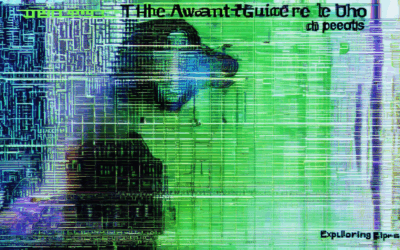


0 Comments